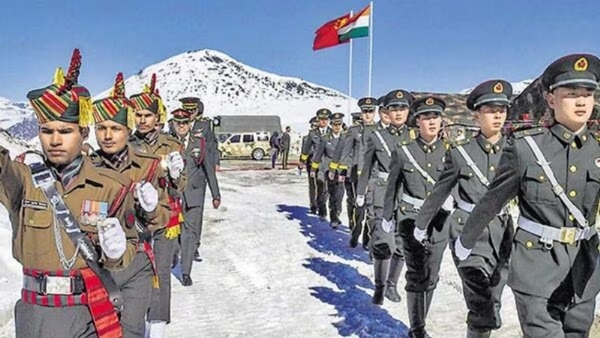China-Taiwan tensions surge as Beijing increases patrolling following fishermen's deaths
Tensions rise in waters near Taiwan as China intensifies patrols after two Chinese fishermen drown. China's coast guard vows to enhance patrols, raising concerns of conflict. The incident occurred near Taiwan's Kinmen islands, with Taiwan accusing the fishermen of trespassing. China condemns Taiwan's actions, blaming the ruling party. Taiwan maintains its coast guard acted lawfully. The incident reflects broader tensions in the Taiwan Strait, with China applying pressure on Taiwan since 2016. Previous joint maritime drills have been held during more cordial times.
New Zealand Navy Chief Admiral David Proctor receives Guard of Honour in Delhi
Rear Admiral David Proctor, Chief of the Royal New Zealand Navy, received a Guard of Honour in Delhi and met with Chief of the Naval Staff, Admiral Hari Kumar. The two naval leaders exchanged greetings, highlighting the cordial relations between India and New Zealand, established in 1952. Admiral Proctor also paid respects at the National War Memorial. New Zealand has identified India as a priority country for trade, aiming to address trade barriers and stimulate demand. Bilateral trade stood at USD 1 billion in 2022-23, with efforts to enhance business dialogue and remove trade obstacles.
"Western countries have long preferred to supply Pakistan, not India": EAM Jaishankar reasserts defence cooperation with Russia
The External Affairs Minister reaffirmed India's defence and trade cooperation with Russia, noting a shift in arms supply trends over the past decade. He highlighted the imbalance in global supply chains and called the current economic model unstable and unfair, emphasizing the need for change. The minister also discussed the multiple stresses facing the global order, including COVID-19, conflicts in Ukraine and Gaza, NATO's Afghanistan withdrawal, and climate disruptions. India and Russia's strategic partnership, particularly in defence and energy, has remained strong, with Russia's assistance in nuclear technology and oil imports playing key roles in advancing India's capabilities.
India, China hold fresh round of military talks

India and China have agreed to maintain peace and tranquility in border areas along the Line of Actual Control in eastern Ladakh during a recent high-level military talks. However, no clear forward movement was made in resolving the over three-and-a-half-year friction points. The 21st round of the India-China corps commander level meeting was held on February 19, with both sides sharing their perspectives and committing to maintain communication through military and diplomatic mechanisms.
China rails against EU’s train subsidy probe – will relations be thrown off-track?
The EU has begun an investigation into subsidies a Chinese train maker received in its bid for a contract, upsetting already strained relations
Train probe comes soon after anti-subsidy inquiry over China’s electric vehicles, suggesting scrutiny unlikely to let up.
Sustaining the U.S.-Philippines-Japan Triad
China’s aggression in the South China Sea and increasingly aggressive posture toward Taiwan continue to pose a threat to the rules-based order in the Indo-Pacific region. Recognizing the threat posed by Chinese revanchism, Japan, the Philippines, and the United States are working to deepen and better network their alliances. How can these partners better coordinate on a range of issues, including Beijing’s illegal behavior in the East and South China Seas and possible Taiwan contingencies? It is imperative that the three partners deepen strategic, military, and economic coordination to better understand and prepare for the roles each might play in a crisis.
Supply Chain Security-The U.S. Military and NATO Face Serious Risks of Mineral Shortages
NATO militaries could face shortages of critical minerals, especially if U.S.-China tensions escalate. Stockpiling could prepare NATO for a crisis.
In a possible U.S.-China conflict, overcoming mineral shortages may demand more than simply increasing available supply. The United States and other NATO countries should therefore consider mineral substitution and rationing to alleviate the pressure on the production of certain minerals. For example, depleted uranium can be substituted for alloyed steel in the production of 120-millimeter tank projectiles without a significant decrease in their effectiveness. In the case of a supply strain, the government could require defense contractors to replace alloyed steel with depleted uranium in that munitions class. During World War II, the U.S. military temporarily replaced brass—a copper-zinc alloy—with steel in cartridge cases; without such a substitution, the U.S. Navy said, it “probably would have been virtually impossible to wage a modern war with the supplies of copper . . . then available in this country.”
The history of the twentieth century suggests that absent such actions to strengthen mineral supply chains, the United States and NATO could be ill prepared for a world more reliant on batteries and renewable energy technologies—let alone a conflict with the world’s mineral superpower, China.

No comments:
Post a Comment